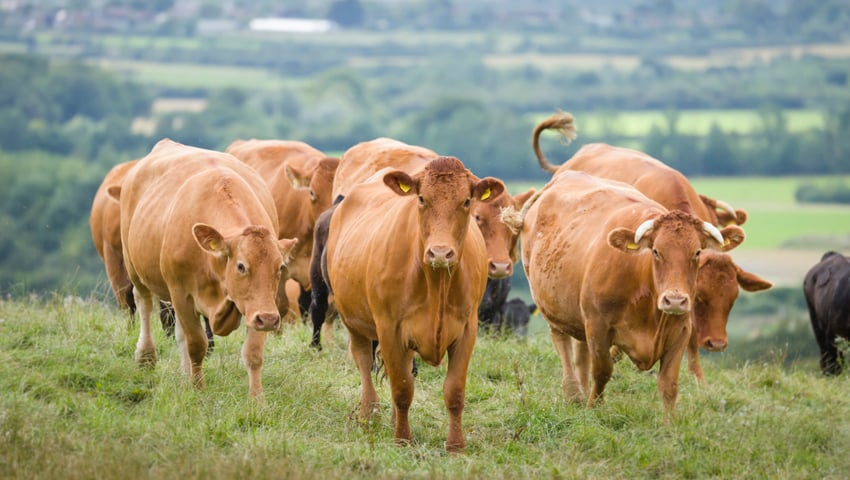There is a misconception amongst many people that farming is expected to deliver zero emissions food production by 2050. This is not the case.
Britain as a nation is committed to net zero, but the Climate Change Committee (CCC) has budgeted different scales of reduction for different sectors.
Dr Amy Jackson, a behaviour change champion for the AFN Network+, said agricultural emissions are expected to fall by less than half by 2050. She said, “While there is currently no statutory target for agriculture, a 45 per cent reduction budgeted for the sector has placed growing pressure on farmers to reduce greenhouse gas emissions.”
Meanwhile, Ruth Westcott, from Sustain, explained that according to the latest UK carbon budget (February 2025), “To meet legally binding climate change commitments, agriculture must reduce greenhouse gas emissions by 39 per cent by 2040.”
Wescott said, “For the first time, the budget sets out explicit targets for reducing livestock numbers, with a 27 per cent reduction in cattle and sheep numbers by 2040, rising to 38 per cent by 2050. According to the report, livestock currently contributes 63 per cent to agricultural emissions, 49 per cent of which is emissions from enteric fermentation in cattle and sheep and 14 per cent from livestock manure.
“Livestock reductions are expected to deliver 32 per cent of the emissions cuts required from agriculture by 2040 and release 68 per cent of land needed for nature recovery and other land-based carbon sinks. Other farming practices, such as feed additives and improved livestock health, will contribute a smaller amount to reduction targets (14%).”
Westcott continued, “On the demand side, the budget sets out a 25 per cent reduction in average consumption of all meat by 2040 and 35 per cent by 2050, consistent with previous carbon budgets. Red meat has a steeper reduction target of 40 per cent by 2050. For the first time, reduction targets are also set for dairy consumption – of 20 per cent by 2035.
The carbon budget also establishes targets for large-scale nature restoration, with 10 per cent of agricultural land by 2040 and 19 per cent by 2050 switched to nature recovery and tree planting. It sets targets to re-wet 79 per cent of upland peat and 56 per cent of lowland peat by 2050.
Josiah Meldrum, co-founder of Hodmedod, said, “Farmers are an essential part of the solution to the climate emergency. Hodmedod has shown that we can grow a diverse and exciting range of nutritious, delicious, high-protein crops in the UK. With the right support we could be growing a lot more, enabling UK farmers to produce food with a low GHG footprint in biodiverse systems. But the situation for farmers is really difficult. We need the government to see horticulture and protein crops from arable as an opportunity for growth, and properly invest in the sector”
Will White, Sustainable Farming Coordinator at Sustain, said, “It’s clear that farming needs to change to reverse nature’s decline and mitigate climate change – but that doesn’t have to mean a hit to farmers’ incomes. In fact, diversified agroecological systems, with fewer but better-managed livestock and additional income from practices like woodland management, have been shown to be more profitable than the current ways we often farm in the UK. But for this transition to succeed, farmers need the right support. The CCC’s targets must be backed by bold, farmer-focused policies from the government.”
Much of this article is drawn from a piece by Ruth Westcott, a campaign manager at Sustain
